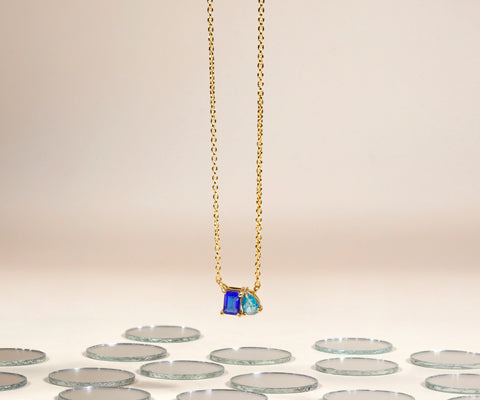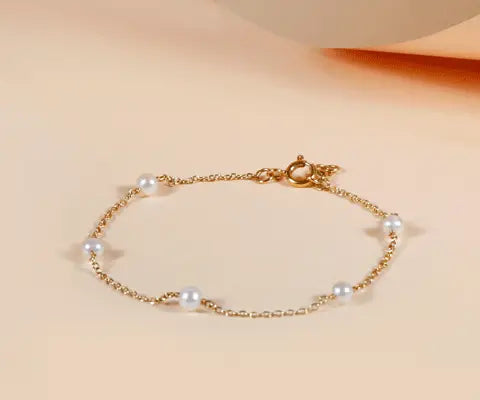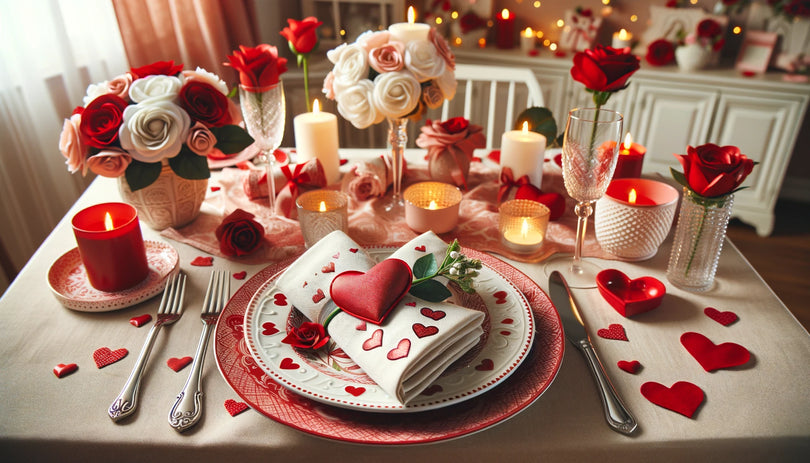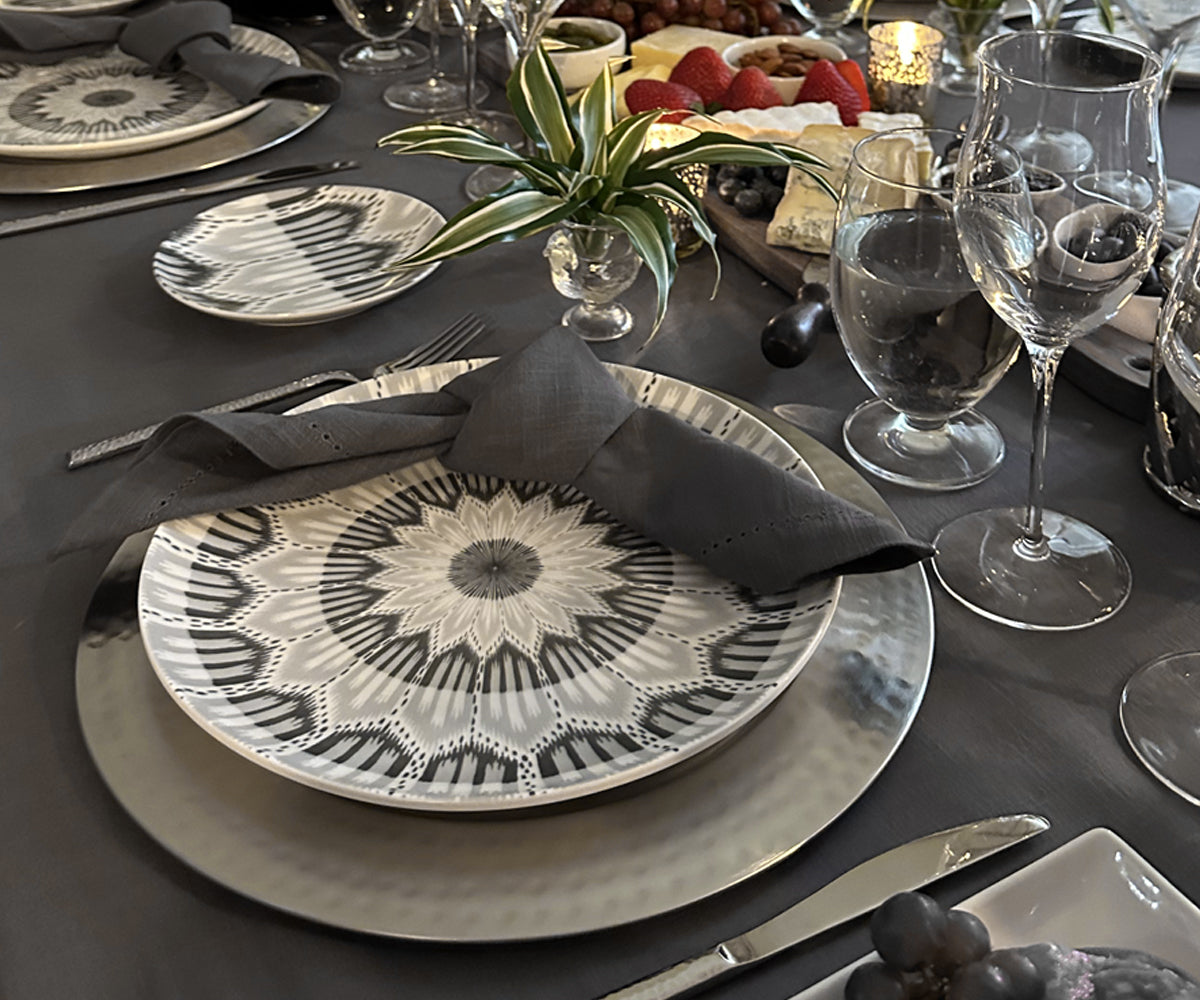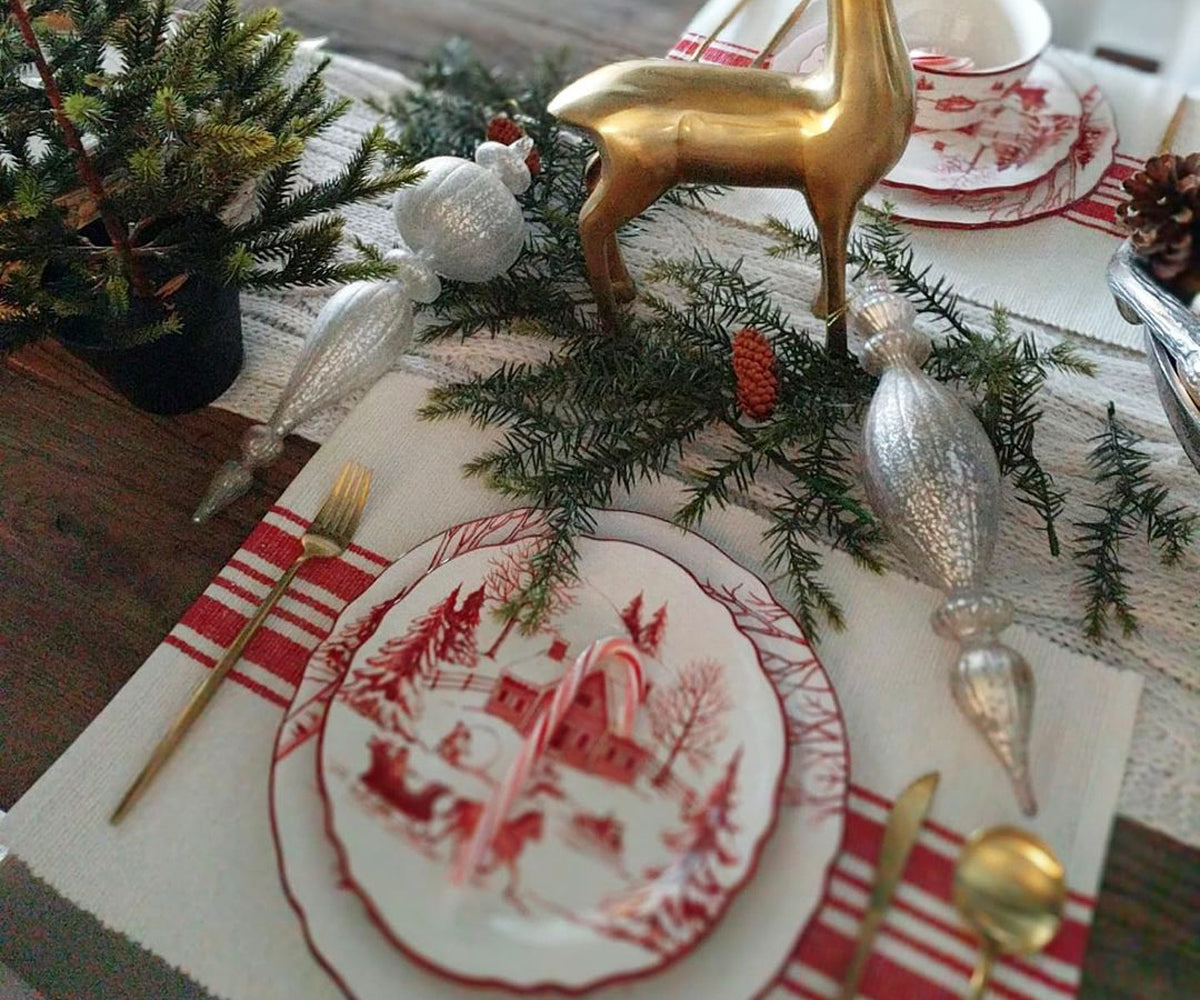1. Revamping with Fabric Paint
One of the easiest ways to transform an old tablecloth is by using fabric paint. This method allows you to add personalized designs or patterns, giving your tablecloth a unique touch.
Choosing the Right Paint
For best results, select fabric paints that are specifically designed for textiles. These paints are more durable and won’t crack or peel over time. You can find fabric paints in a variety of colors and finishes, including matte, glossy, and metallic.
Getting Started
- Clean the Tablecloth: Make sure your tablecloth is clean and free of any stains.
- Design Your Pattern: Sketch out your design on paper first. You can choose anything from simple geometric shapes to intricate patterns.
- Apply the Paint: Use stencils or freehand your design onto the tablecloth. Allow the paint to dry completely before using or washing.
This technique not only updates the look of your tablecloth but also makes it a conversation piece at your next gathering.
2. Adding Fabric Appliqué
Appliqué is a technique where you sew or glue fabric shapes onto your tablecloth. It’s a fantastic way to add texture and color.

Materials Needed
- Fabric scraps
- Scissors
- Needle and thread or fabric glue
- Iron
How to Apply Appliqué
- Cut Out Shapes: Choose fabrics in complementary colors or patterns and cut them into shapes you like.
- Attach Shapes: Position the shapes on your tablecloth and secure them with fabric glue or by sewing them on.
- Finish with Ironing: If using fabric glue, press the appliqué with an iron to set it. This will help the glue bond better.
This method is perfect for adding a touch of whimsy or elegance to your tablecloth.
3. Using Embroidery
Embroidery adds a delicate and intricate touch to your tablecloth. You can choose from a range of stitches and thread colors to create a design that complements your decor.

Selecting the Thread
Use embroidery floss or thread that is colorfast and won’t bleed in the wash. You can choose contrasting colors for a bold look or match the thread to the tablecloth for a subtle effect.
Embroidery Techniques
- Mark Your Design: Lightly draw your design on the tablecloth with a fabric marker.
- Start Stitching: Use basic stitches like satin stitch, French knots, or backstitch to create your design.
- Secure Threads: Knot the threads at the back of the tablecloth to prevent unraveling.
Embroidery adds a personalized touch and can make a simple tablecloth look elegant and custom-made.
4. Adding a Fabric Border
If you’re looking to update your tablecloth with a new look, adding a fabric border is a straightforward and effective method.

Choosing Fabric for the Border
Select a fabric that complements or contrasts with your existing tablecloth. Patterns like stripes or checks can add visual interest.
Steps to Add a Border
- Measure and Cut: Determine the width and length of the border needed and cut the fabric accordingly.
- Attach the Border: Sew or glue the border onto the edges of the tablecloth.
- Press the Edges: Iron the border to smooth out any wrinkles and set the fabric.
A new border can significantly change the look of your tablecloth and is a great way to refresh your table setting.
5. Upcycling with Denim
Transforming old jeans into a tablecloth can give your dining area a chic, rustic look. This upcycling method is both eco-friendly and fashionable.
Preparing the Denim
Cut the denim into squares or strips. You can mix and match different shades for a patchwork effect.
Assembling the Tablecloth
- Arrange Pieces: Lay out the denim pieces in a pattern you like.
- Sew Together: Use a sewing machine to stitch the pieces together. You can add a backing fabric for extra durability.
- Finish Edges: Hem the edges to prevent fraying.
Denim tablecloths are durable and add a unique touch to your table setting, perfect for casual or rustic themes.
6. Adding a Quilted Look
Creating a quilted effect on your tablecloth adds texture and warmth. This method is ideal for giving a tablecloth a cozy, homey feel.
Materials Needed
- Batting (for the quilted effect)
- Quilting fabric
- Sewing machine
How to Quilt
- Layer the Fabrics: Place the tablecloth fabric on top of the batting and a backing fabric.
- Baste Layers: Temporarily secure the layers with basting stitches or fabric pins.
- Quilt: Sew through all layers in a pattern of your choice, such as diamond or square shapes.
Quilting adds both style and functionality to your tablecloth, making it perfect for both formal and casual dining.
7. Refreshing with Dye
If you want a complete overhaul, dyeing your tablecloth can completely change its appearance.

Choosing the Right Dye
Select a dye that is suitable for the fabric of your tablecloth. Fabric dyes come in a wide range of colors and types, including liquid and powder forms.
Dyeing Process
- Prepare the Dye: Follow the instructions on the dye package.
- Dye the Fabric: Immerse the tablecloth in the dye, ensuring it is evenly saturated.
- Rinse and Dry: Rinse the tablecloth until the water runs clear and then hang it to dry.
Dyeing is a fun way to give your tablecloth a vibrant new look, and you can experiment with different techniques like tie-dye or ombré for added flair.
Revamping your old tablecloths with these creative techniques can give them a new lease on life, making them a standout feature in your home. Whether you choose fabric paint, appliqué, embroidery, or any of the other methods, you’ll find that a little effort can yield impressive results. So gather your supplies and let your imagination run wild!
Related Readings
- The Ultimate Guide to Fabric Paints
- Discover how to choose and use fabric paints for DIY projects. (The Spruce)
- Creative Appliqué Techniques for Beginners
- Learn different appliqué techniques to enhance your sewing projects. (Sew Magazine)
- How to Embroider on Different Fabrics
- A comprehensive guide to embroidery techniques suitable for various fabrics. (Craftsy)
- Upcycling Old Clothing into New Home Décor
- Get inspired to transform old clothes into stylish home décor items. (House Beautiful)
- Quilting Basics: Everything You Need to Know
- Learn the essentials of quilting and how to apply it to various projects. (Quilting Daily)



